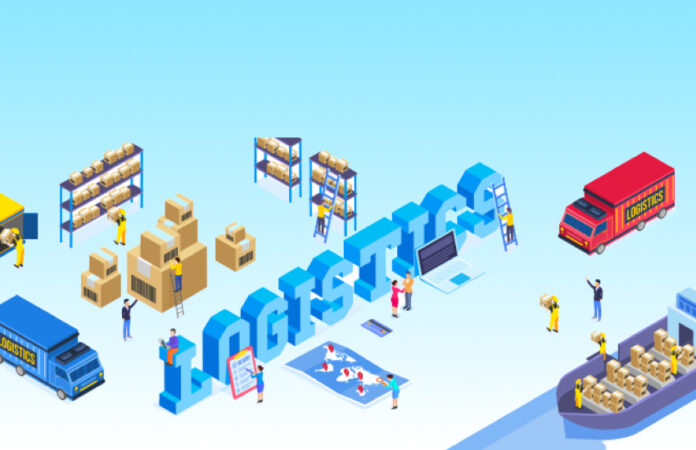Uncharted Journeys refers to the opportunities and difficulties of traversing the intricate world of global logistics. Businesses are increasingly extending their activities outside national borders as a result of the advent of globalization and e-commerce, and logistics specialists are essential to guaranteeing the seamless movement of goods and services across various geographies and cultural contexts. Logistics professionals require a variety of abilities to be successful in this fast-paced industry, from strategy planning and supply chain management to risk analysis and cultural sensitivity.
Navigating intricate and constantly changing regulations and customs procedures is one of the biggest obstacles in international logistics. To prevent expensive delays and fines, logistics experts must stay current with the rules and regulations that each nation has set forth for the import and export of commodities. Although different locations may have different business practices, communication methods, and expectations, cultural differences can also have a big impact on logistics planning. In order to be successful, logistics professionals must be able to adjust to these variations and forge close bonds with partners and stakeholders across diverse cultures and regions.
Factors To Consider When Selecting International Logistics

Companies must take into account a number of aspects when choosing international logistics to ensure the effective and seamless transfer of goods across borders. The dependability of the logistics company should be one of your top priorities. Businesses must select a logistics company with a track record of on-time and reliable delivery of goods. This can be accomplished by investigating the reputation, client feedback, and industry qualifications of the logistics service. For more information visit : https://www.dhl.com/discover/en-my/e-commerce/international-guides
The logistics provider’s cost-effectiveness should be taken into account as well. While selecting a dependable provider is crucial, businesses must also make sure they are getting the most for their money. This entails analyzing and contrasting the pricing structure of the logistics provider with that of other service providers on the market. Companies must also take into account the provider’s capacity to deliver tailored solutions that address their unique demands and specifications, as well as their capacity to adjust to market developments like variations in fuel prices or currency exchange rates.
Strategies For Successful International Logistics

Careful planning and execution are necessary for effective international logistics. Businesses must take into account a number of things, such as the forms of transportation, customs laws, and potential language problems. Having a thorough understanding of the supply chain network is one of the most crucial tactics for effective global logistics. Each stage of the supply chain process, from locating raw materials to delivering finished goods to customers, must be carefully assessed by businesses. They can find possible bottlenecks and opportunities for development thanks to this evaluation.
Working with knowledgeable logistics partners is a key component of a successful international logistics strategy. For the supply chain to be as successful and efficient as possible, these partners can offer invaluable experience and assistance. They can also offer assistance with complicated customs laws and give advice on the best modes of transportation.
To make sure that they have the expertise, assets, and infrastructure required to meet their needs, companies should thoroughly assess possible logistics partners. Companies may successfully manage the difficulties of global logistics and accomplish their business objectives by carefully managing the supply chain network and collaborating with knowledgeable logistics partners.
The Importance of Cultural Sensitivity
One of the biggest challenges in international logistics is navigating the cultural differences that can impact the supply chain process. Different locations may have different business practices, communication methods, and expectations, which can lead to misunderstandings, delays, and other complications. To be successful, logistics professionals must be able to adjust to these variations and forge close bonds with partners and stakeholders across diverse cultures and regions.
This requires a deep understanding of cultural norms, values, and behaviors, as well as the ability to communicate effectively across language and cultural barriers. Logistics professionals must be sensitive to the nuances of different cultures and be willing to adapt their approaches to suit local customs and expectations. By fostering cultural sensitivity and understanding, logistics professionals can build trust, establish strong relationships, and create a more seamless and efficient supply chain process.
Overcoming Regulatory Obstacles in International Logistics

Another major obstacle in international logistics is navigating the complex web of regulations and customs procedures that govern the import and export of goods across borders. To prevent expensive delays and fines, logistics experts must stay current with the rules and regulations that each nation has set forth for the transfer of commodities. This requires a deep understanding of customs procedures, import and export requirements, and other regulatory frameworks that can vary from country to country.
Logistics professionals must also be able to manage the logistical challenges that can arise from regulatory compliance, such as transportation delays, customs inspections, and documentation requirements. By developing a thorough understanding of these regulations and working closely with customs officials and other stakeholders, logistics professionals can help ensure the smooth movement of goods across borders.
Balancing Cost and Quality in International Logistics
Cost is always a critical consideration in logistics, but it becomes even more important when operating across international borders. Businesses must balance the need for cost-effective logistics services with the need for high-quality and reliable delivery. This requires a careful analysis of pricing structures, logistics providers, and other factors that can impact the overall cost of the supply chain process.
To achieve the right balance between cost and quality, businesses must carefully assess the capabilities and qualifications of different logistics providers, as well as their capacity to deliver tailored solutions that address their unique demands and specifications. They must also be prepared to adjust their strategies and approaches as market conditions change, such as variations in fuel prices or currency exchange rates.
International logistics can be a daunting prospect for many businesses, but with the right strategies and tools in place, it is an attainable goal. By following our advice on uncharted journeys to international logistics, you can chart a course that will lead your business to success. With proper planning, dedication and persistence, you’ll find yourself navigating new horizons while exploring the world of global trade.








